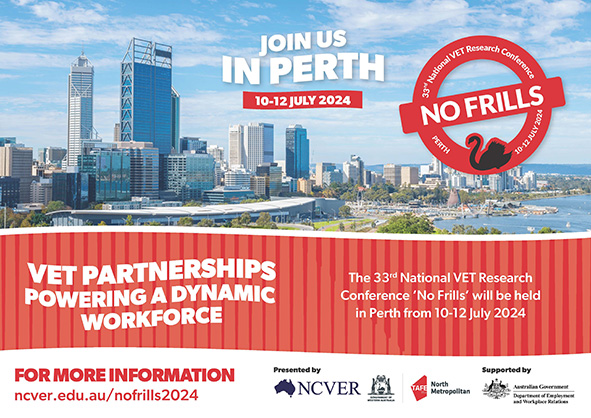This is the assertion of an analysis paper published by the Centre for Independent Studies and authored by Steven Schwartz. It points to the significant student growth in unis over the last 20 years where, at the same time, VET has endured a number of scandals and financial pressures. “As a result, VET is now stigmatised as a second-class education option, and employers demand university credentials for jobs that formerly did not require them,” the paper suggests.
Schwartz points out that, in 2022, around 50 per cent of Australians aged 25-34 have at least one tertiary degree, close to a 70% jump from their parent’s generation. However, he also maintains that “universities are expensive to run because they are pre-industrial craft industries in which productivity gains are rare. They find it difficult to control their costs and rely instead on increasing their income by enrolling more students.” Moreover, Schwartz maintains that expanding enrolments has required some admission standards to be lowered and thus “the quality of the education they provide has suffered.”
Schwartz also questions assertions that university programs have the benefits they claim, noting:
“They justify their behaviour with fatuous “economic impact” studies designed to prove that universities are engines of economic growth. Even a cursory look at these studies reveals a shaky foundation of assumptions, assertions, and guesses.”
And
“Universities [also] claim their degrees remain relevant because they endow graduates with higher-order cognitive skills applicable to any job. They offer no objective evidence for this claim.”
Rather, he argues that: “an end to degree inflation would bring many social and economic benefits. Employers would have access to a larger and more diverse pool of potential employees whose experience and skills render them equally, or even better, qualified than applicants with degrees.” These potential employees would also possibly come with a wider range of work and learning experiences.
In some earlier research looking at the value of higher apprenticeships. For certain occupations it was found that, in the building and construction industry:
“the orientation is towards gaining the management skills that will enable the best to become site foremen, site supervisors and subsequently move into construction, production and project management roles. Several of the large companies we visited noted that they preferred those coming from a trade background to those with formal higher education project and construction management qualifications as they were seen as more practical and aware of the issues that occurred in the day-to-day management of such construction sites and projects.”
In essence, what we are talking about is respecting a wider range of learning and educational opportunities and making tertiary pathways – whether up, down or across – work better.
Finally, Schwartz notes that:
“Universities have nothing to lose by admitting poorly prepared students (and failing to provide them with remedial support) because they keep the fees even when dropouts and graduates fail to repay their loans. Although the graduate premium is shrinking, marginal students continue to enrol in universities because they also have little financial risk; taxpayers pick up the cost of their unpaid loans.”
Such an approach sunk VET Fee Help, as it should have. Put simply, maybe a better design and ‘policy reset’ is called for? He makes a number of suggestions, including dropping degree requirements for jobs where feasible, reducing regressive subsidies and ensuring that universities and graduates carry more of the risk of non-repayment of student loans, and improving the esteem of VET “by combining it with higher education and allowing students to include VET subjects in their degrees.” While this is already being done, maybe we need to do this more?








